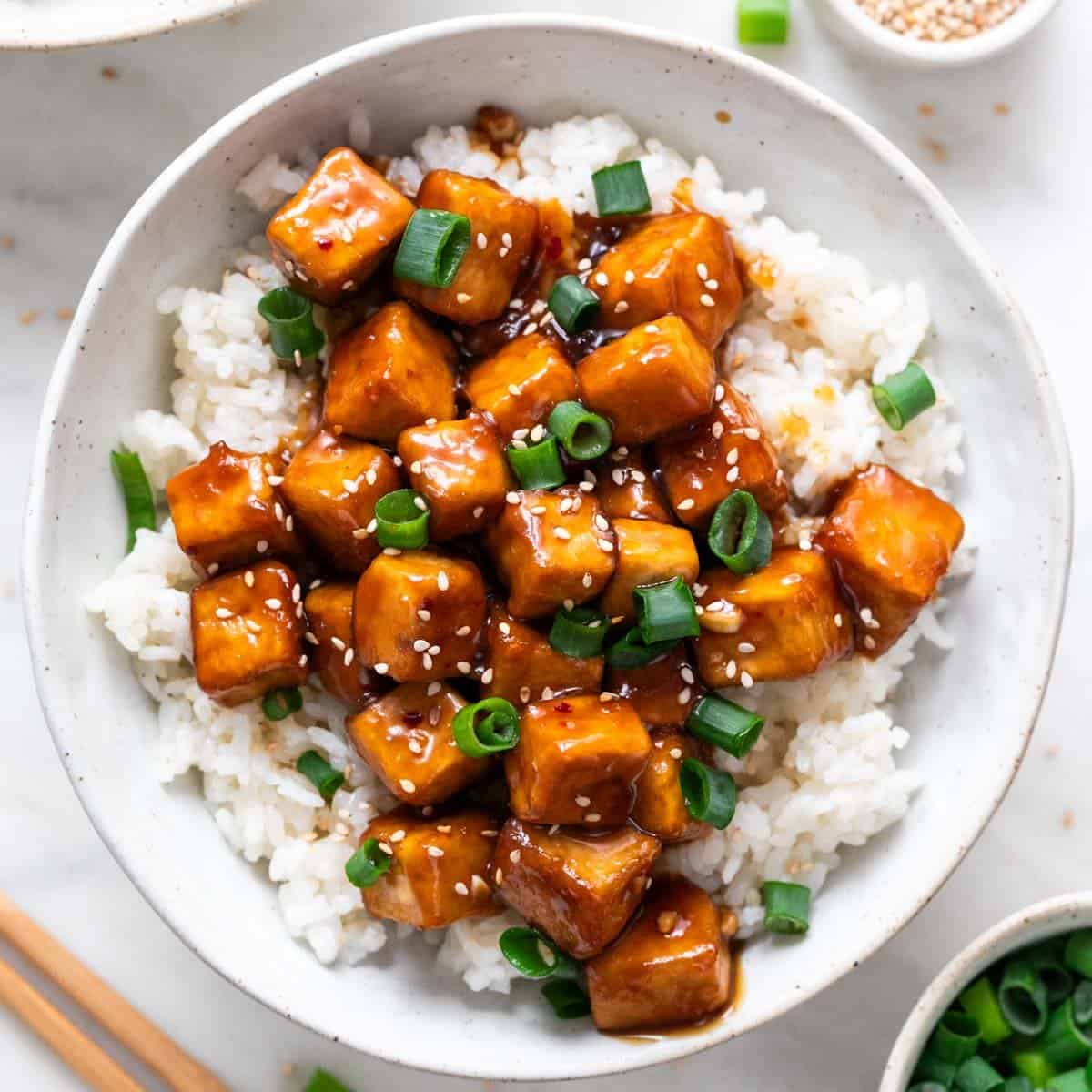Pressing tofu is recommended, as it removes excess moisture, allowing the tofu to absorb more of the sauce and achieve a firmer, crispier texture when cooked.
If you’re short on time, you can skip pressing, but the tofu may be softer and won’t soak up the flavors as much. For the best results, pressing is worth the extra effort!
The easiest way is to use a non-stick pan.
If you’re using a wok, skillet, or regular pan, preheat it for 1-2 minutes before adding the oil, ensuring it covers the bottom of the pan evenly.
It’s also important to let the tofu cubes sit in the pan without moving them too much. As they cook and turn golden brown, they will naturally release from the surface.
I like to pan-fry tofu because the original orange chicken recipe is fried, and I find it tastes better and stays juicier. Baking can make it a bit drier and it doesn’t soak up the sauce as well, but it’s still a great option if you’re looking for a lighter choice. You can also follow my Baked Tofu, Air Fryer Tofu, or Fried Tofu recipes. Once it’s fried, just toss the tofu in the sauce as usual.
If you’re looking for tofu alternatives, try tempeh for a firmer texture, seitan for a meaty bite, or chickpeas for a crunchy option. Cauliflower and mushrooms also work well, offering a crispy or meaty texture. For a version closer to traditional orange chicken, store-bought or homemade vegan chicken is a great choice.
You can serve orange tofu with a variety of sides. Some great options include steamed rice, quinoa, or noodles. For extra flavor and nutrition, add some veggies like bell peppers, broccoli, or snap peas. It also pairs well with a simple salad, sautéed greens, or roasted vegetables. You could also serve it with stir-fried bok choy, cauliflower rice, or even a side of vegan spring rolls for a complete meal.

